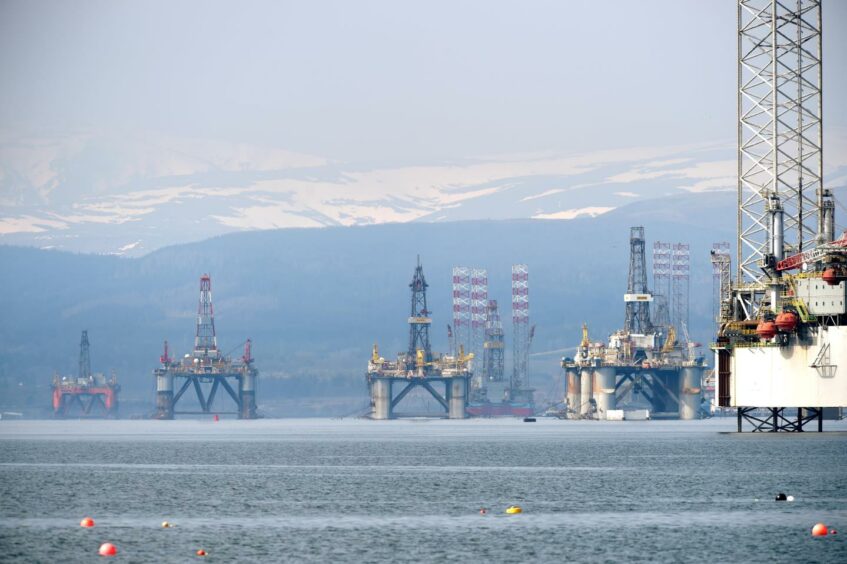
There are fears a windfall tax on the profits of oil and gas companies would deal a further blow to “investor confidence” in the UK North Sea.
Jenny Stanning, Oil and Gas UK’s (OGUK) external relations director, also warned that it could cut the amount of money companies are able to spend on decarbonising their operations.
Following the recent surge in gas prices and the upcoming rise in energy bills, fresh calls have been made for Westminster to tap into the profits of North Sea firms.
Green energy innovator Dale Vince recently claimed that oil and gas companies have made a “killing” off the back of the price spike.
European gas prices hit a record high last year as many countries lifted Covid lockdowns, wind speeds dwindled and key energy supply lines were hampered.
It means bills could increase by as much as £2,240 when the current cap on prices finishes in April.
Speaking on BBC’s Today programme last week, Mr Vince argued for a North Sea windfall tax to ease the financial hit for consumers.
‘Highly destabilising’
But Ms Stanning says the gas shortages are a “stark reminder” of why the UK needs to “maintain its own resources” rather than put them at risk.
She said: “Our offshore oil and gas industry provides secure energy for the UK and supports 200,000 jobs. It also has the people and skills needed to move the country towards a low-carbon energy future. But it is an industry that thinks and invests long-term. Sudden changes and penalties in the tax regime could be highly destabilising.
“A windfall tax would knock investor confidence, damage the competitiveness of our basin and potentially affect the future production of resources that will be needed by the UK for years to come.
“Many of the companies that might be affected are also investing heavily in low-carbon and renewable energy. For them, a windfall tax could reduce the amounts they could invest while also generating uncertainty about future potential returns.”
Fueling the fire
There are already worries that the UK North Sea is becoming an increasingly unattractive place for investors.
That was demonstrated by Shell’s decision to pull out of the Cambo project
The west of Shetland scheme was was on the receiving end of a large amount of flak from certain quarters last year.
But despite the fears about a sudden and sharp change to the tax regime, it would appear unlikely at this stage.
Kwasi Kwarteng, the UK’s Business Secretary, said in September last year that he is “not a fan” of windfall taxes, though the decision ultimately lies with the Treasury.
Tax would ‘jeopardise’ a just transition
Clare Munro, partner in energy and infrastructure at Brodies LLP, said: “Many forget that the UK oil and gas industry already pays additional tax in the form of the supplementary charge, which is paid on all UK oil and gas production.
“An additional ‘windfall’ tax on oil and gas companies in the UK would not solve the issue of rising energy prices, and could in fact accelerate rising prices and jeopardise a just transition.
“Higher wholesale commodity prices due to lack of global supply are causing the problem, and increasing UK oil and gas taxes – which would inevitably reduce UK output by bringing forward decommissioning of mature fields and decrease investment in new and producing fields – would exacerbate that problem.
“A rapid cessation of UK oil and gas production is not the way to achieve a managed and just energy transition – some production will still be necessary for decades to come, to balance the energy mix and facilitate the UK’s hydrogen ambitions.”
Not a new idea
In 2011 there were fears some firms were readying to pull out of the UK North Sea after then Chancellor George Osborne opted to hike taxes.
The decision, which was met with much criticism at the time, was taken in the wake of rising oil prices.
Nevertheless the idea of a windfall tax was reignited as part of the Labour party’s 2019 manifesto, with former leader Jeremy Corbyn pledging to shave £11 billion off the industry’s profits.
Recommended for you


 © Supplied by OGUK
© Supplied by OGUK © Supplied by Brodies LLP
© Supplied by Brodies LLP